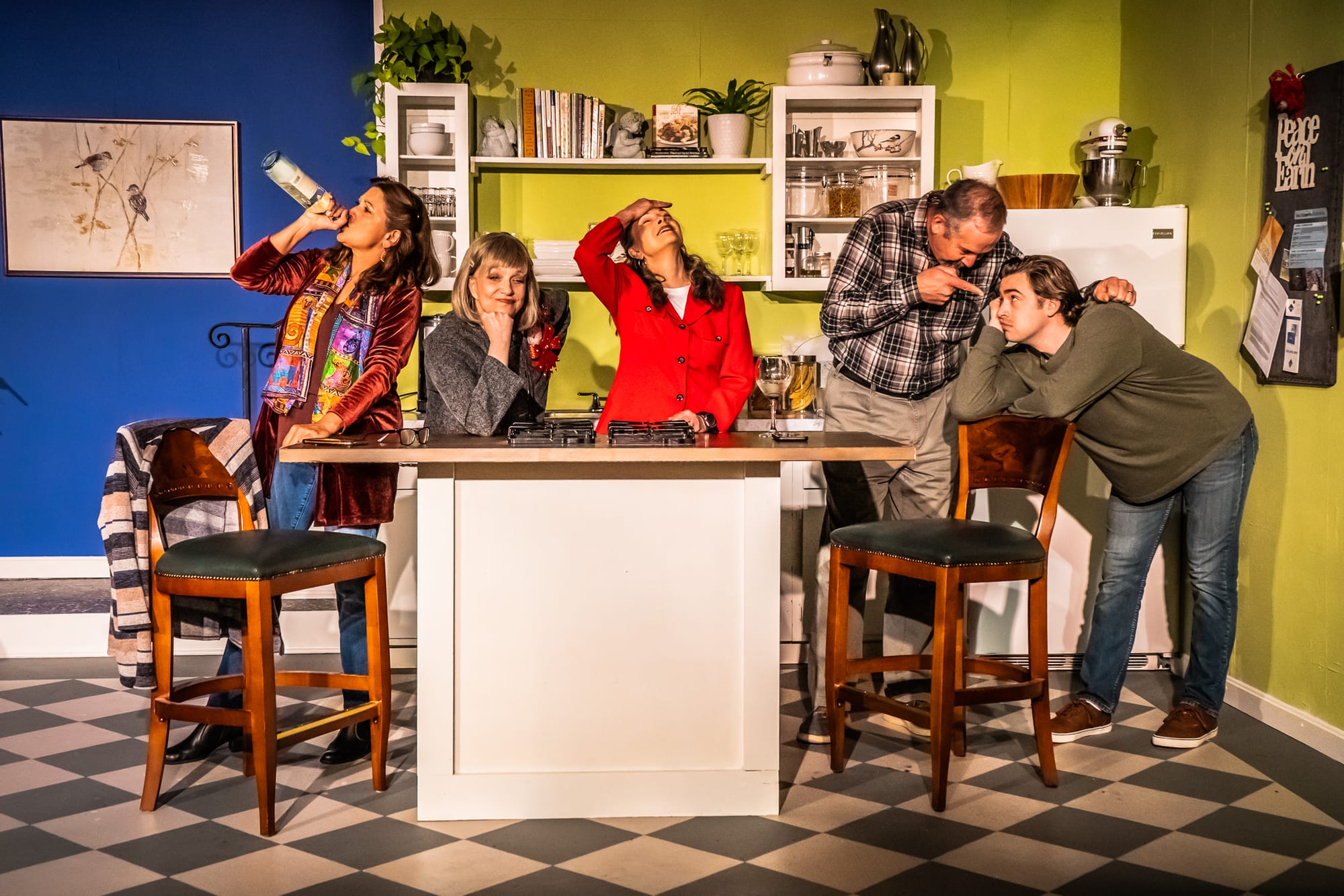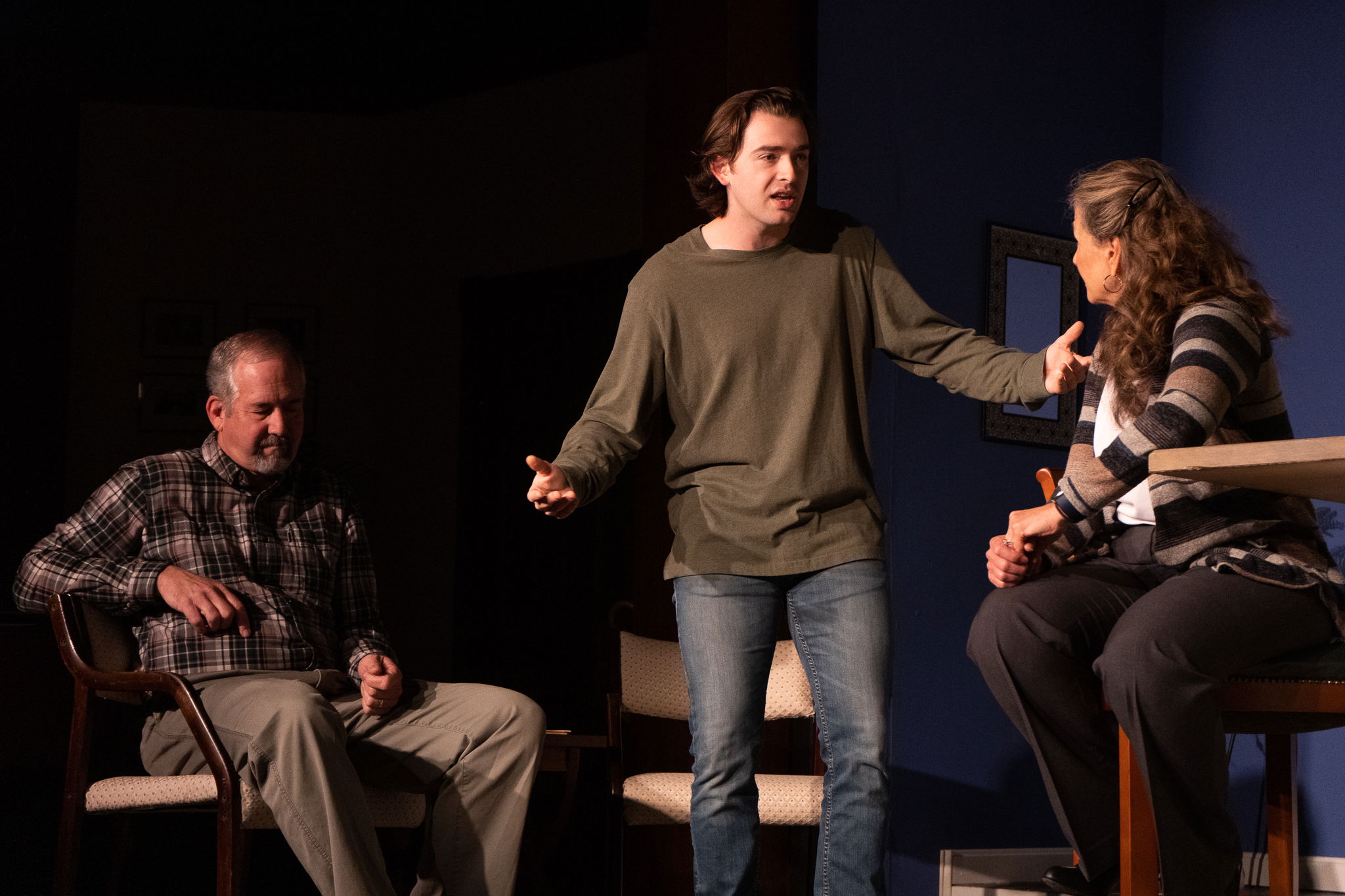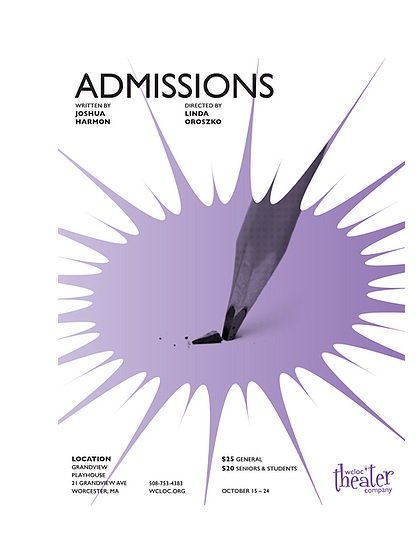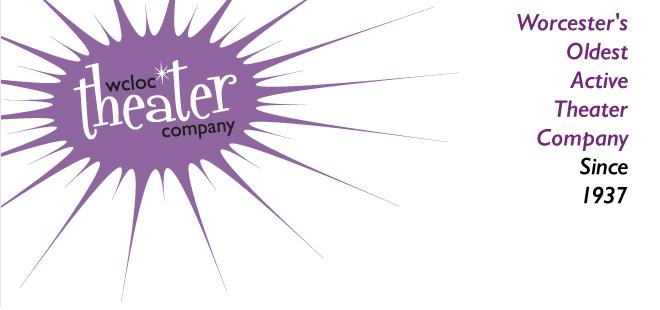"Admissions" By Joshua Harmon - Worcester County Light Opera Company (Worcester, MA.) - REVIEW

(Cover Photo: The Company of Joshua Harmon's "Admissions," presented by Worcester County Light Opera Company. Photo Credit: Christopher O'Connor)
"You are capable of more than you know"
By Kevin T. Baldwin
METRMag Reviewer
# 774-242-6724

Worcester County Light Opera Company (WCLOC)
Presents
"ADMISSIONS"
Written By Joshua Harmon
Directed By Linda Oroszko
Cast Includes: Brenda Jenkins, Rob Lynds, Michael Skrzek, Barbara Kessler, Amy Newberg.
Additional Production Team: Producers Eric Butler and Rachel Savage; Set Designer and Construction Ed Savage; Scenic Artist Sally Bowditch; Lighting and Sound Design Vic Kruczynski; Costume Design Jo Ann Savage; Costume Assistant Sarah Figueira; House Manager Ken Bibeau; Photography Chris O’Connor.
Performances:
October 15, 16, 21, 22 & 23, 2021 at 7:30pm
and
October 17 & 24, 2021 at 02:00pm
WCLOC, Grandview Avenue Playhouse, Worcester, MA.
Ticket Prices: $25.00 General Admission; $20.00 Seniors (62+) & Students
Phone # 508-753-4383
Email: admin@wcloc.org

(Rob Lynds, Michael Skrzek and Brenda Jenkins in a scene from Joshua Harmon's "Admissions," presented by WCLOC. Photo Credit: Christopher O'Connor)
Joshua Harmon’s “Admissions” is less an essay on exposing white privilege and more an essay on how those seeking to change systemic advantages of white privilege are personally obscured from seeing themselves as part of the ongoing problem.
However, the production, directed by Linda Oroszko, succeeds at holding up a mirror to the latter.
The 90-minute one-act play won the 2018 Outer Critics Circle Award for Outstanding New Off-Broadway Play for Admissions and the 2018 Drama Desk Award for Best Play.
At a prestigious New England prep school, the Headmaster, Bill Mason (Rob Lynds), sings the praises of his wife, Sherri (Brenda Jenkins), who is the school’s Admissions Director, and whose primary focus has been on increasing diversity within the predominantly white student campus.
Lynds and Jenkins have wonderful on stage chemistry and deliver impressive performances.
The couple are Caucasian with a white son, Charlie (Michael Skrzek), who is now in his senior year at the same school and awaiting acceptance into an Ivy League school.
Meanwhile, Sherri has been tirelessly working on a new school brochure with her assistant, Roberta (Amy Newberg), one that showcases the school’s student body “diversity” and offer a sense of inclusion to increase the attractiveness of the school to minority student applicants.
The split-set design by Ed Savage and Sally Bowditch utilized the WCLOC stage perfectly showing us both Sherri’s office at Hillcrest and the kitchen in the Mason’s home. Set changes in between scenes flowed seamlessly.
On the back wall of Sherri's office hangs a small sign that speaks volumes of what this show's message is about: "You are capable of more than you know."
At the start, Sherri and Roberta get into a lengthy debate over Roberta’s need for more specificity of what, exactly, Sherri defines as “diverse” and “inclusive.”
This deliberation spills over into the balance of the drama which opens up multiple discussions on the subject, impacting all involved and sparking conversations beyond the WCLOC stage...which is exactly what should happen.
Most impacted are the Masons who learn that Charlie has been deferred acceptance to Yale, while his best friend, and son of Sherri’s best friend, Ginnie (Barbara Kessler), was accepted.
Both boys were equal in all things academic - Yet Ginnie’s son is half-African American on her husband's side.
While her son is referenced as being predominantly Caucasian in appearance (we never actually “meet” Ginnie's son), he apparently checked off a “box” on his application which provided him with special consideration as a minority.
It is never really confirmed if this was the reason for his acceptance over Charlie, but it is certainly a theory to which some, especially Charlie, allude. Why Harmon chose not to include the characters of Ginnie's husband and her son, given how much they are mentioned throughout the show, is curious as they could only have provided more substantive perspectives.
Charlie begins long diatribes, expressing his frustration, with much of it directed at his liberal parents and their long adherence to affirmative action. He points out, in his frustration, that they are trying so hard to solve the systemic problem they cannot see themselves as inherently part of the same problem.
Bill and Sherri want the best for their son yet Charlie, at 17, begins to break from the influence of his parents’ leanings. However, when they try to “help” Charlie by getting him into Middlebury College, he shocks them with a startling announcement.
As Charlie, Skrzek is virtually spellbinding in his delivery with his numerous long monologues. As written, though, Charlie, a senior in 12th Grade, appears far too eloquent, coming across, at times, as a middle aged philosopher stuck in a teenager’s body.
The rest of the performances are solid, although there were a few noticeably awkward silences, stumbles, and stepped on lines. Parts of the show seemed scripted so the dialogue flows conversationally, naturally…other parts didn’t feel that way at all.
During the arguments, at no time is anyone proven wrong. Yet, at nearly every turn, all the characters are made to feel incredibly at fault. Not once is there an agreement, or even a suggestion, that everybody’s point of view on this subject has some merit and should, at least, be considered.
The story is top-heavy on trying to expose "liberal hypocrisy." Nevertheless, Harmon’s script falls short, dramatically, with weak counterpoints in many of the debates.
Where it succeeds, though, is in how these debates will inspire further ongoing audience discussion of the subject matter long after the show ends…which, again, is exactly what should happen, because we are ALL capable of more than we know.
The show runs approximately 90 minutes with no intermission.
Kevin T. Baldwin is a member of the American Theatre Critics Association (ATCA)
@MetrmagReviews
@Theatre_Critics


COVID-19 PROTOCOL
Proof of vaccination and masks are required for all audience members.

ABOUT WORCESTER COUNTY LIGHT OPERA COMPANY (WCLOC)
| Founded in 1937, WCLOC Theater is Worcester’s oldest active theater company. As a local, non-profit community theater, we depend on the generosity of our members, patrons, subscribers, and donors to help forward the mission of our organization to entertain, inform, and nurture local artists and audiences through the production of high quality, affordable musicals, plays, and children’s educational workshops. A donation to WCLOC allows us to continue to keep tickets affordable for local audiences, helps us maintain and make necessary improvements to our Clubhouse, and supports a full season of memorable theater and educational opportunities. |


